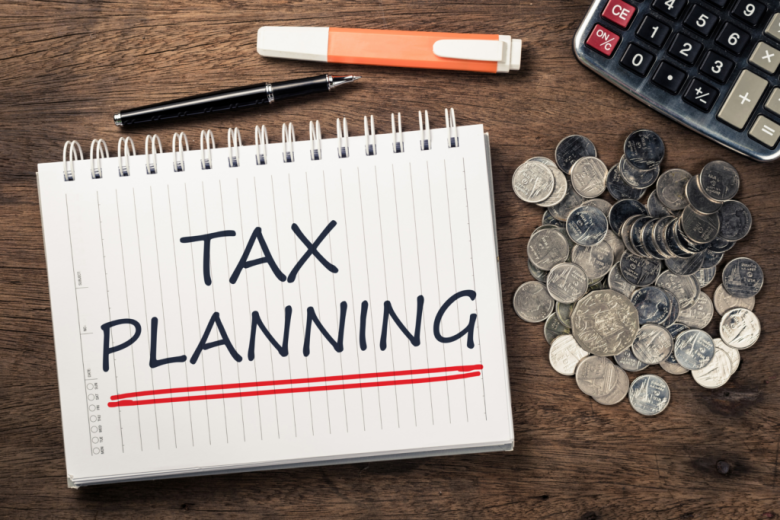Your business goals can fade during tax season. What if you could turn your fears into opportunities? Understanding tax requirements is essential for business owners to comply with tax rules and maximize their profits. With the right strategies and insights, you can legally reduce your business taxes and save money.
Hidden deductions and valuable credits can optimize your tax position without breaking the rules. Regardless of experience, smart tax strategies can help entrepreneurs succeed. Learn how a simple plan change can save you big on your taxes in this tutorial. Your smarter tax journey starts here!
Sales Tax: Why It Matters
To run a business, you have to pay taxes. These include income tax, payroll tax, and sales tax. Each type has different functions, but they all help provide public services. Understanding these taxes is essential to your financial health and compliance. The penalties you face if you fail to meet your obligations can be a drain on your finances.
Additionally, sales taxes directly impact cash flow and profit margins. Understanding how they work can help you plan better and avoid surprises during tax season. Taxes also impact growth and expansion strategies. When businesses understand tax rates and regulations, they can meet their financial obligations with greater confidence. In essence, understanding business taxes helps property owners make smarter decisions that support both short-term and long-term goals.
Commonly Overlooked Tax Benefits for Businesses
Businesses often overlook tax benefits that would reduce their tax burden. The cost of a home office is often underestimated. If you work from home, you can deduct rent, mortgage interest, utilities, and internet. Consider deducting car expenses. Tracking business travel mileage can save you a lot. Choose the actual expense method or standard mileage rate that works best for you.
Consider professional development costs. Costs for training, seminars, and certifications in your field are deductible. You’ll save on taxes and improve your talents. Food and entertainment are often overlooked during business meetings. Save your receipts; they can help you with your taxes!
Tax Credits to Reduce Corporate Taxes
Tax breaks can help business owners reduce their tax bill. Tax credits directly reduce your tax bill, while deductions reduce your taxable income. Businesses often ignore tax breaks. Innovation and investment in new technologies earn R&D credits. If your company develops or improves a product, you may qualify.
Another option is energy efficiency credits. Financial incentives for adopting renewable energy or upgrading equipment encourage businesses to implement sustainable practices. Certain recruitment programs offer tax breaks. You can save a lot of money by hiring veterans or disadvantaged groups. Actively seek out industry- and location-specific tax breaks. Every dollar saved can be reinvested in the growth of your business.
Tax Benefits of Starting a Business
Starting your business can have tax implications. When you form a business, you create a legal entity. This separation allows you to protect your personal assets from business debt. Corporate tax rates are generally lower than income tax rates. This can reduce your corporate taxes. Businesses can take advantage of deductions, but self-employed individuals cannot. You can deduct your health insurance and pension premiums, which can save you a lot of money in the long run.
In addition, forming a business also makes investing easier. Structured businesses attract more investors than unincorporated businesses, which can facilitate capital flows. Incorporated businesses often gain the trust of their customers and suppliers. Customers often rely on the reliability and professionalism of formal structures.
Prepare for End-of-Year Tax Savings
As the end of the year approaches, careful tax savings planning is essential. Start by analyzing your financials to see what deductions and tax breaks you missed this year. Increase your expenses for the current tax year. A down payment or the purchase of equipment can significantly reduce your taxable income.
Another good idea is to review your retirement contributions. By contributing more, you protect your future savings and reduce your current taxable income. Consider charitable donations. If you donate before December 31st, you can claim your tax deduction and support a cause that matters to you. Determine what options you have to defer your income. If you delay your tax return until January, you can roll over your income to the next tax year. This will reduce your current year tax burden. During tax season, every decision counts in optimizing your business’s finances.
Hire an Accountant or Tax Advisor
Complex business taxes can be tricky. A professional accountant or tax advisor can help you with this. Their experience saves you time and money. An experienced tax professional knows the current laws and deductions in your industry. Their observations can give you insight into the money-saving opportunities you may have missed.
An experienced professional can help you develop a strategy for the entire year, not just during tax season. This proactive approach can save you from rushing to gather documents and make decisions at the end of the year. Let the experts manage your finances so you can focus on growing your business. Their expertise gives you peace of mind that your taxes are in good hands. Hiring a qualified accountant may seem expensive, but when it comes to filing, it’s worth it.
Conclusion
Complex business taxes can be tricky. With proper planning, you can significantly reduce your tax bill. Take advantage of all deductions and discounts. Many businesses miss opportunities because they don’t know if they qualify.
Another effective way to save on taxes is to form a corporation. It protects the business from liability and offers benefits that only a sole proprietorship would miss. Never underestimate professional advice. An experienced accountant or tax advisor can optimize your financial planning throughout the year.
FAQs
1. Business Taxes?
Businesses pay federal, state, and local taxes. The list includes income, salaries, sales, and other items.
2. What Deductions Am I Eligible for?
It is usually necessary to record business expenses to determine whether you qualify for a deduction. The IRS rules or a tax advisor can clarify the deduction.
3. Am I Eligible for Home Office Expenses?
Yes! If you use part of your home exclusively for business purposes, you may qualify for a deduction based on the size of your workspace relative to the entire home.
4. Is There a Special Credit for Small Businesses?
Absolutely. Many credits are awarded based on hiring practices or investments in technology. Consulting an expert or doing research can save you a lot.
5. When Should I Start Tax Planning?
The sooner the better! Financial accounting allows you to make decisions throughout the year when tax returns start again. To proactively reduce liability, consider conducting quarterly reviews.




